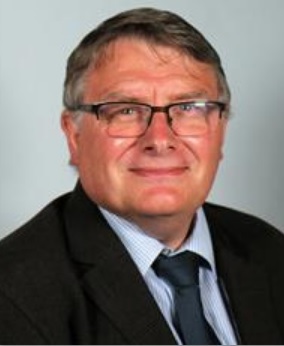ASSURANCES have been given that financial pressure being put on council budgets due to the influx of child refugees to look after, is being brought to the UK Government’s attention.
At a meeting of Powys County Council’s Health and Care scrutiny committee on Friday, January 26 councillors went through the budget needs of the Children’s Social Services department for 2024/2025.
Out of an overall council budget of £340.7 million for next year the Children’ Service slice is expected to be just under £29.5million.
Children’s Service chiefs predict that they will face financial worries totalling £2.8 million in the forthcoming financial year which includes £802,797 of potential costs for dealing with child refugees.
The youngsters are under the council’s wing as part of the UK Government’s National Transfer Scheme (NTS) which expects all local authorities to “play their part” and accept transfers of children into their care.
This predicted cost pressure for next year is broken down into £99,649 to pay for extra staff to deal with the unaccompanied asylum seeking children, £309, 817 for the 23 placements for children under 18 years old which is the current maximum expected for Powys, and £393,331 for placements for those over 18 years old.
Committee chairwoman, Conservative Cllr Amanda Jenner said: “These are costs over and above the money you’re getting from the Home Office.”
With the possibility that the UK Government could direct council’s all over the country to take more children, councillors were told that 2024/2025 would be a “learning year” to see how much support these youngsters would be need and the associated costs.
Head of children services Sharon Powell said that the council was looking at developing more of its own provision within the county, rather than “having to source external provision” with other local authorities.
A previous report on the topic showed that the majority of unaccompanied asylum seeking children were being cared for by Powys – but in placements in England.
Labour’s Cllr Chris Walsh said: “Are we just getting a fixed amount of money and once the child’s needs have been assessed there is no additional funding that would be released.”
Ms Powell said: “Cost versus complexity of need is the challenge as we don’t know these young people until they arrive.
“They get a very brief assessment in Kent and then we follow that up once they reach our care.
“Some children require minimum needs whereas others need a lot more specific intervention.”
This could mean being required to live in a residential care home, which is “very costly.”
Cllr Walsh: “This is opening us up to a huge amount of potential costs and that seems unfair.
“Realistically this should have some more funding.”

He believed the process needs to be “challenged” as it could impact how Powys deliver services as the current situation could see money having to be moved from other parts of the council to fund a child with complex needs.
“There needs to be a reassessment process by the Home Office,” said Cllr Walsh.
Cllr Jenner asked whether any conversations were taking place with the Home Office over the issue.
Director of education and children’s services, Lynette Lovell said: “Representations are being made, not just from us but from the region, as well as from the whole of Wales around the pressures this puts on local authorities.”

Cabinet member for children’s social services Labour’s Cllr Sandra Davies stressed: “These youngsters have gone through traumatic experiences.
“It does take time to identify the problems and added complication they may have.
“The short window of five days to assess their needs puts every authority into a similar situation.
“It’s about doing the best we can to support them.”
Recommendations from the committee will be put to the Cabinet at a meeting next month.



















